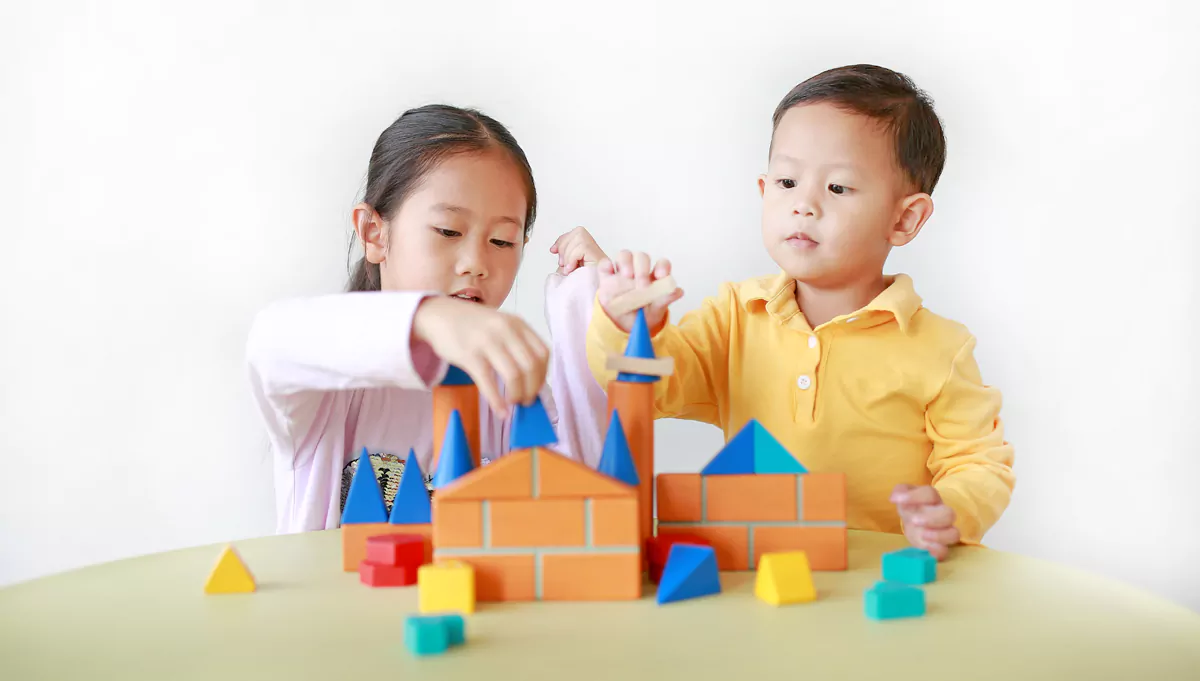How can play-based activities teach children to respect each other?
Play is the natural way that involves young children in activities that helps them to learn and develop. It’s also important for all areas of development, especially developing emotional intelligence. In fact, it is only through play based learning activities that a child can practise managing strong emotions like excitement, anger and frustration in a safe way.
Besides, young children are learning about emotions all the time from what happens around them in their own lives. Creating innumerable chances to explore different emotions and learning to express them in different ways, including words.
When involved in play based learning activities with you and other children, your child is creating opportunities to practise managing her emotions in real-time. More importantly, play is how your child will learn to control her behaviour effectively and establish and build upon new relationships.
How a child learns to respect others
Play is a fundamental aspect of a child’s development, and it should be an integral part of their daily routine. Children learn through play, and it is essential for their social, emotional, physical, and cognitive growth as well.
It is important to include group activities to teach respect and create an environment where children feel safe and free to explore their surroundings and engage in imaginative and creative play. Providing them with a variety of toys, games, and materials that spark their curiosity and imagination is crucial.
You as a parent need to play an active role in your child’s play. Joining in their play, providing guidance and support, and encouraging them to explore and experiment will help them develop their problem-solving, communication, and critical thinking skills.
Apart from this, group activities to teach respect can be used as a tool for teaching literacy and numeracy. Incorporating educational activities into playtime help children develop their language and math skills while having fun.
Group activities to teach respect can become an essential component of a child’s development, and it should be a priority for parents to incorporate it into their daily routine. By providing children with opportunities to play and learn, you can help them develop into well-rounded and successful individuals.
What to expect from a toddler
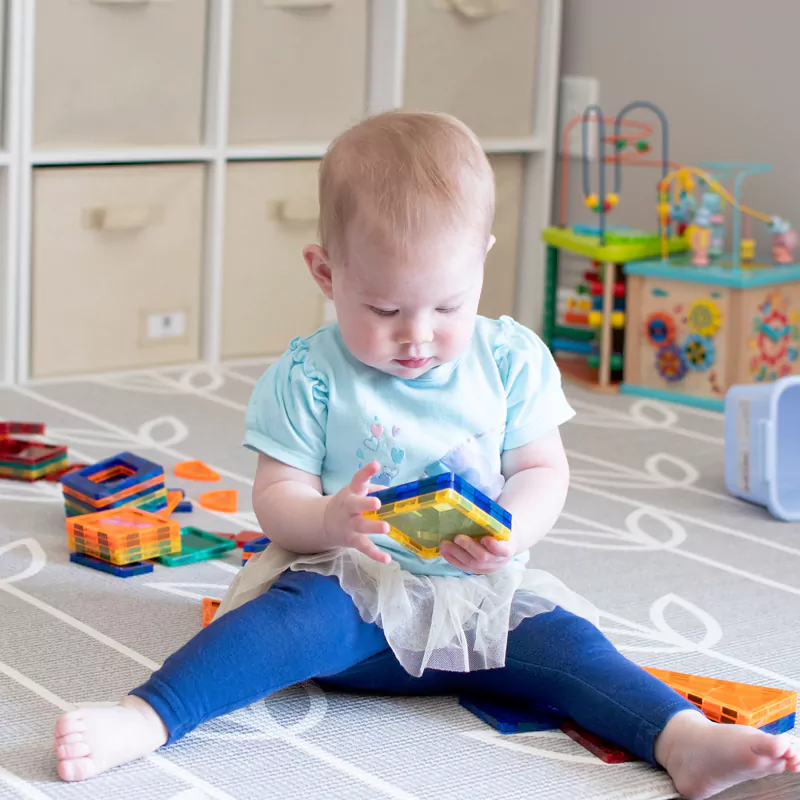
You cannot expect young children to be angles when it comes to how they will behave in a given situation. Little children usually have their own agenda. As a matter of fact, it often seems as though their whole purpose in life is to rub you the wrong way.
That’s perfectly normal. They are out to test the limits of their power over their parents. While this is fine as long as you don’t let them get under your skin, they also need to learn the importance of respect for you and others — and respect begins at home.
Orienting your child
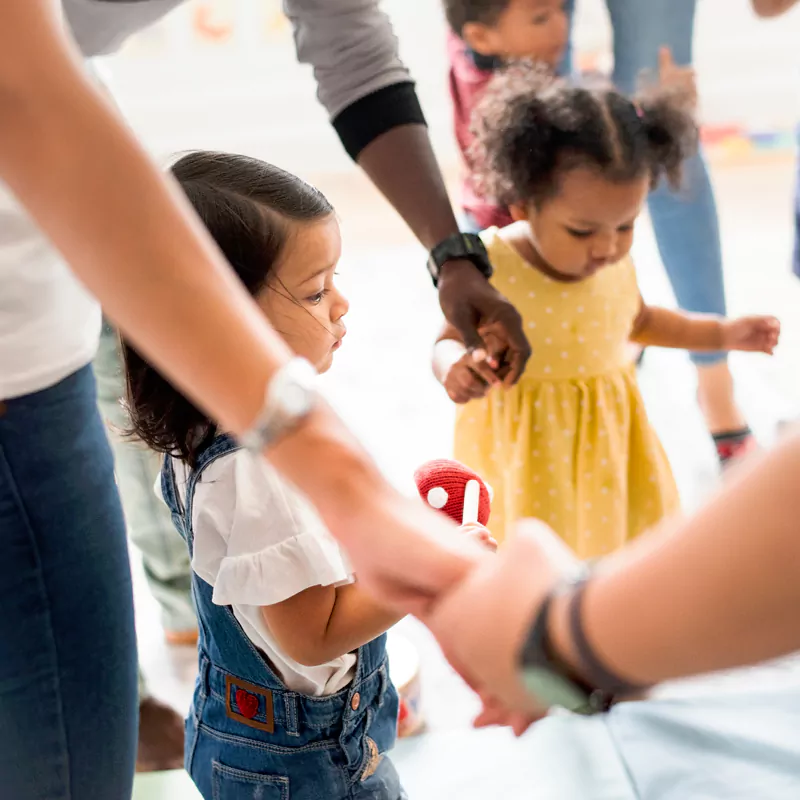
Respectful behaviour involves treating your child with dignity, empathy, and consideration. It means acknowledging her feelings, and opinions, and recognizing your child as an individual in her own right with her own unique strengths and challenges.
One essential aspect of kindness and respect is listening actively and attentively. When your child feels she is heard and understood, she is more likely to trust and respect you and the adults in her life. You can demonstrate respectful behaviour by taking the time to listen to her, making eye contact, and showing genuine interest in what she has to say.
Another way to model kindness and respect is by involving your child in decision-making processes and giving her a voice in family matters. Family meetings are an excellent way to promote respectful communication and collaborative problem-solving. You can encourage your child to share her ideas and opinions about issues that affect the family, such as schedules, chores, or vacations, and you need to take her thoughts seriously.
Respectful behaviour also means setting clear boundaries and expectations while avoiding physical discipline. It involves treating your child with kindness and compassion, even in challenging situations, and modelling appropriate conflict-resolution skills.
By modelling kindness and respect, you can foster positive relationships based on trust, mutual understanding, and empathy. You can also teach your child valuable life skills such as active listening, effective communication, and respectful conflict resolution, which will benefit your child throughout her life.
On being polite
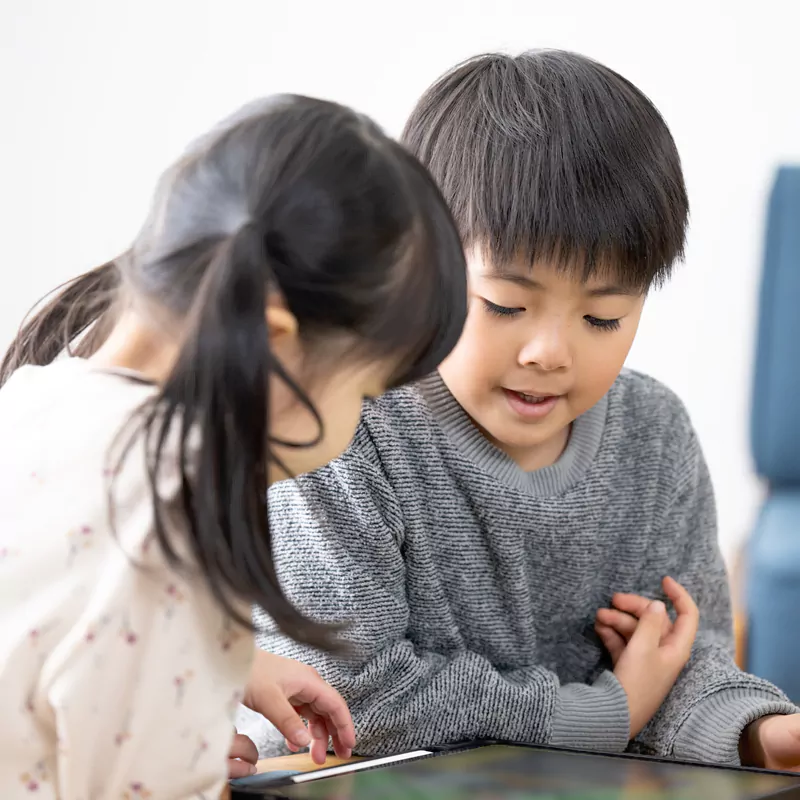
Being polite is a crucial aspect of good communication and plays a critical role in building healthy relationships. Start with “please” and “thank you.” These phrases are the building blocks of good manners. It is essential to keep encouraging your child to use these phrases as often as possible, both at home and in public.
Explaining respect to a child is by leading by example. Your child learns by watching and imitating the adults around her. Reinforce polite behaviour. Praise your child when she uses polite language, and gently remind her when she forgets. Avoid scolding or punishing her for forgetting; instead, gently encourage her to try again.
Whenever you can, explain to your child why politeness matters. Explaining respect to a child will help your little one understand that using polite language shows respect and care for others. Explain that when she is polite, it makes people feel good and more willing to help her.
Make it a point to practice being polite in different situations. Encourage your child to use polite language in different settings, such as at the store, at the park, or when visiting relatives. Practice scenarios at home where your toddler can practice polite language, such as asking for something nicely or thanking someone for a gift.
Make it fun. Turn practising polite language into a game or a challenge. For example, see who can say “please” and “thank you” the most times in a day or try to come up with creative ways to use polite language.
Explaining respect to a child and teaching a child to be polite may take time and practice. Be patient and consistent, and pretty soon your little one will be using polite language naturally and effortlessly.
Avoid overreacting
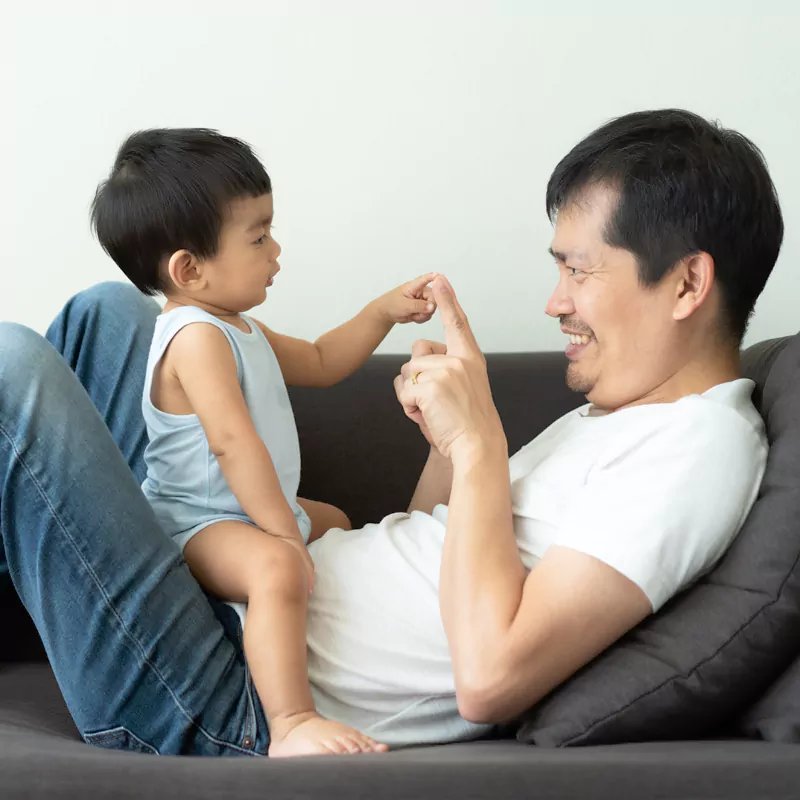
A child who wants to provoke a negative reaction will endure almost any unpleasantness just to rub you the wrong way. It’s important to remain calm and avoid overreacting when your child says something disrespectful or hurtful.
Reacting angrily or emotionally may actually reinforce her behaviour and encourage your child to repeat the same behaviour again. Instead, it’s important to set clear boundaries and expectations for how you expect to be treated in a respectful manner.
An effective way to do this is to have a calm and direct conversation with your child about why name-calling is hurtful and not acceptable whether at home or outside of it. Model the behaviour you want to see by showing your child how to communicate her needs and wants in a respectful way. By doing this, you are teaching her valuable communication skills and reinforcing positive behaviour.
It is OK to disagree
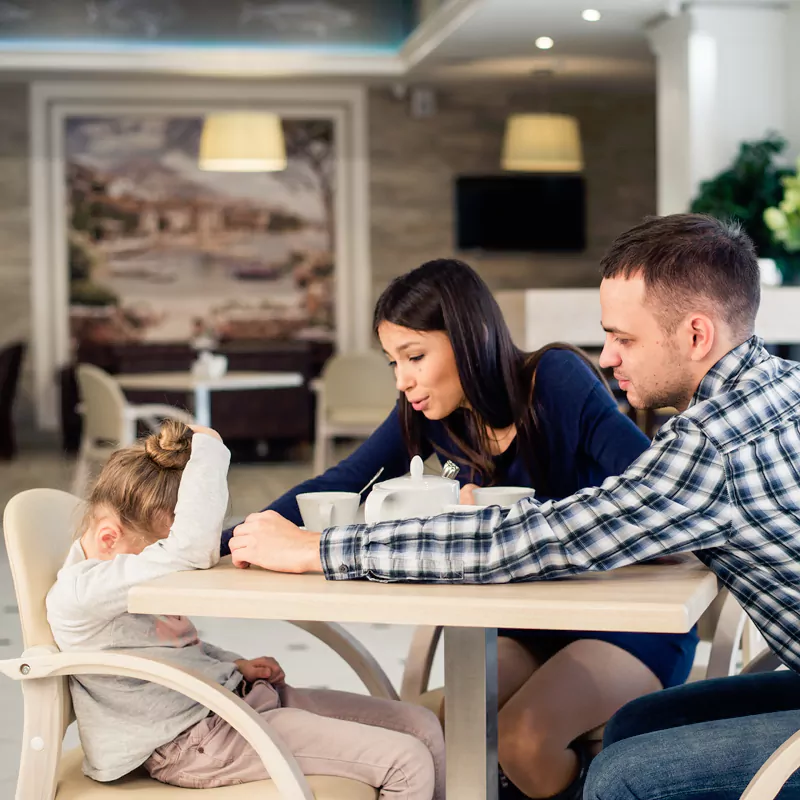
Disagreements are inevitable in life. However, it is important to recognize that children, like adults, have their own opinions and preferences, and it’s natural for them to express them.
This is why it is important to teach your child how to express her opinions and desires respectfully. When your child learns to communicate her needs effectively and politely, she is more likely to get what she wants as well as maintain positive relationships with others.
One way to teach your toddler to express herself respectfully is by modelling the expected behaviour yourself. When you ask your child to do something, use a positive tone and explain why it is important. Encourage your child to ask for things politely and to express gratitude when her requests are met.
In addition, you can help your child develop problem-solving skills by brainstorming alternative solutions whenever there is a disagreement. For example, if your child wants to go bike riding but you need to go to the grocery store, you can suggest going for a bike ride after the store or finding a different activity that you can do together.
By teaching your child how to communicate respectfully and manage to do this even when there is a disagreement, you help her develop important life skills and strengthen her relationship with others.
Drawing a line is important
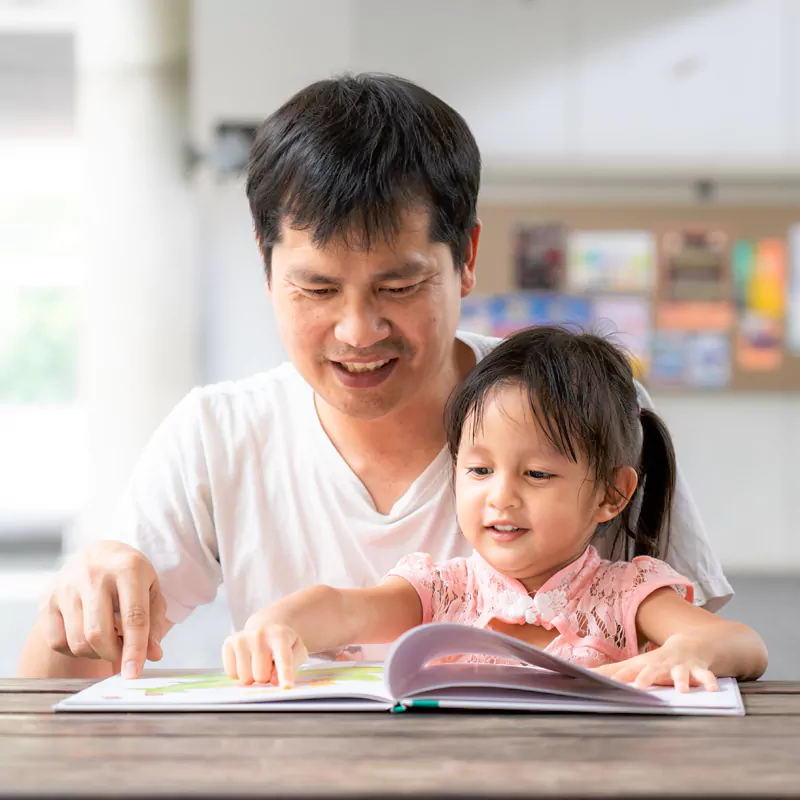
It is important to set limits with your child when she is misbehaving or throwing a tantrum. Here is how you can go about setting limits:
- Be clear and specific about what behaviour is acceptable and what is not.
- Always use a firm and authoritative tone of voice, but remain calm and composed.
- Acknowledge your child’s feelings, but don’t let your dictate how she is going to behave.
- Follow through with consequences, whenever your child continues to misbehave.
- Offer choices when appropriate to give your child a sense of control and autonomy.
- Be consistent in your expectations and the consequences of bad behaviour.
- Stay focused on the issue at hand and don’t get sidetracked by unrelated arguments or distractions.
Bear in mind that setting limits is not about controlling your child, but is about helping her learn to manage her behaviour in a respectful and responsible way. For instance, when she misbehaves in a shopping mall, walk a few feet away from your child after telling her, “I’ll be right over here where you can see me. Tell me when you feel better, and we will continue to shop.”
If the meltdown continues you can always lead your child out to the car, where she can collect herself in privacy. With practice and patience, you can teach your child to regulate her emotions and behave appropriately even when there are challenging distractions.
Always talk things over
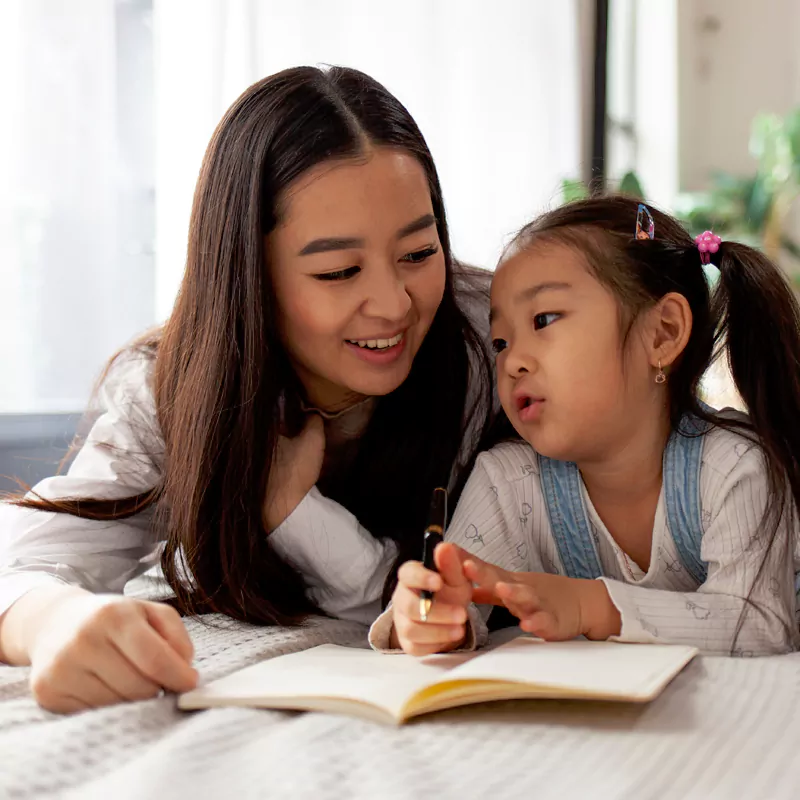
One mistake parents often make is that they try to impose consequences instead of helping their child explore consequences. When your child believes that you’re really curious about her thinking, it’s amazing — she’ll often come to the same conclusion as you would.
The most effective way to handle disrespectful behaviour is to discuss it with your child after the event. It is important to give your child some time to calm down and reflect on the situation before you begin to discuss it. This will help prevent the conversation from escalating into an argument and allow both of you to approach the issue with a clear head.
When discussing the issue with your child, it is important to validate her feelings and show empathy. By acknowledging how she feels, you help her feel heard and understood. You can also ask open-ended questions to encourage your child to think about the situation and come up with her own solutions.
Please note that imposing consequences is not always the most effective approach, especially with a very young child, who may not fully understand the implications of her actions. Instead, helping your child explore the consequences of her behaviour can be a more effective way to teach her about respect and responsibility.
When you take a calm and empathetic approach to handling disrespect, it can help strengthen the parent-child relationship and promote positive behaviour in the long run.
Never forget to praise
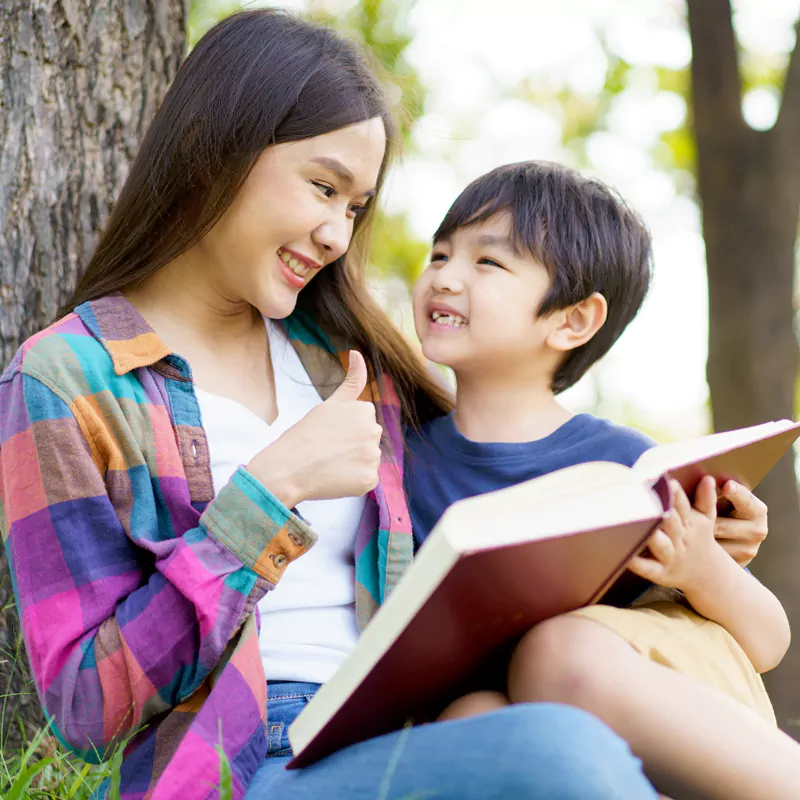
When your child exhibits good behaviour, you can praise her by describing the behaviour in detail. Instead of saying “I am proud of you” say, “Thank you for saying please when you asked for a snack.” Be explicit, and your child will quickly learn that her efforts are worthwhile and appreciated.
Being specific in your praise is crucial. When you praise your child for her polite behaviour, describe the behaviour in detail so that she understands precisely what she did well. This will help her to internalize the behaviour and make it a habit.
For example, if your child says “thank you” when receiving a gift, you can say, “I appreciate how polite you were when you thanked Grandma for the present. It was very kind of you to show your gratitude like that.” This way, your child knows precisely what she did well and can replicate this behaviour in the future.
Praising respectful behaviour is an excellent way to reinforce positive behaviour in children. When your child exhibits good manners and polite behaviour, it is essential to acknowledge and praise her efforts. By doing so, your child will learn that her actions are valued, and she will be motivated to continue exhibiting such behaviour.
Appreciating and praising respectful behaviour is an excellent way to reinforce positive behaviour in children. By being specific in your praise, you can help your youngster develop good habits that will benefit her for a lifetime.
About My Gym
My Gym involves children in dynamic games, physical activity and movement that help in building neural networks in the brain. Customizing its enrichment programs and workshops makes it easier for children to acquire intellectual skills, navigate complex social situations, and nurture emotional development.
Please visit any of our centres to learn more about how My Gym supports “whole-child development” through bespoke physical activities. Choose a day when you will be relatively free and come over with your child in tow. Your child could be an infant (as young as 6 months), a toddler or a preschooler, age is not a bar for enrolling.
My Gym has perfected the art of physical development in early childhood, help a child improve her gross and fine motor skills. It has specially designed programs that will lay a firm foundation for personal, academic and future growth by involving your child in age-appropriate structured and unstructured physical activities and developing thinking and problem-solving skills.
Please note: My Gym classrooms are thoroughly sanitized every day — the tables, the chairs, the children’s activity stations and everything else the child might touch is made safe and clean. Please wear a mask, wash your hands frequently, and practice social distancing.



